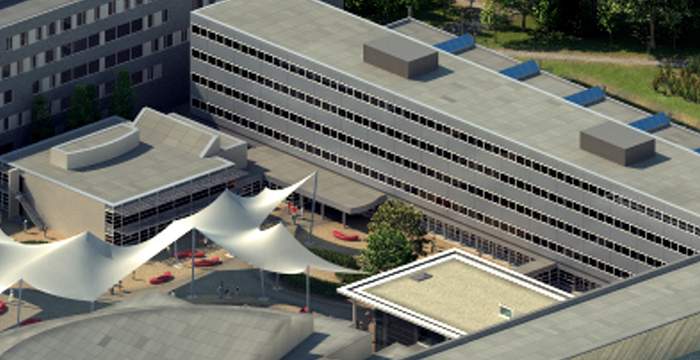Nikolaos Alachiotis completed his undergraduate studies at the ECE department of the Technical University of Crete (Greece) and his Ph.D. at the Informatics department of the Technische Universität München (Germany) in 2008 and 2012, respectively. His research interests lie in the fields of computer architecture, parallel computing, reconfigurable computing, and Bioinformatics. He joined the Computer Architecture Lab at Carnegie Mellon University as a post-doctoral researcher in 2014, where he led the design of a generic acceleration architecture for 3D-stacked DRAMs (DARPA-funded PERFECT project). He joined the Computer Architecture and VLSI Systems Laboratory at FORTH-ICS in September 2016, where he worked on architecture design and hardware development for specialized acceleration in disaggregated datacenters (EU-funded dReDBox project). In June 2019, he joined the Telecommunications Systems Research Institute to work on automated generation of hardware-accelerated software for deployment on the cloud (EU-funded EDRA project). He is with the CAES group at UT since June 2020.
Expertise
Computer Science
- Convolutional Neural Network
- Detection
- Positive Selection
- Field Programmable Gate Arrays
- Neural Network Architecture
- Linkage
- Algorithms
Biochemistry, Genetics and Molecular Biology
- Selective Sweep
Organisations
Publications
2026
2025
Research profiles
Courses academic year 2025/2026
Courses in the current academic year are added at the moment they are finalised in the Osiris system. Therefore it is possible that the list is not yet complete for the whole academic year.
- 191211208 - Internship EE
- 191211219 - Master Thesis Project
- 191211650 - Multi-Disciplinary Design Project
- 192166200 - Capita Selecta I-Tech
- 192199508 - Research Topics CS
- 192199968 - Internship CS
- 192199978 - Final Project CS
- 201300086 - Research Topics 2 CS
- 201400171 - Capita Selecta ST
- 201600187 - Individual Project
- 201800524 - Research Topics EIT
- 201900194 - Research Topics I-Tech
- 201900223 - Capita Selecta Electrical Engineering
- 201900234 - Internship I-Tech
- 202001162 - Bachelor Thesis EE
- 202001434 - Internship EMSYS
- 202001444 - Placement Course for Exchange EEMCS
- 202200251 - Capita Selecta DST
- 202300070 - Final Project EMSYS
- 202300078 - Embedded Computer Architectures 1
- 202300099 - Instrumentation for Embedded Systems
- 202500036 - Continuous Linear Systems
- 202500037 - Digital Hardware
- 202500038 - Computer Architecture and Organisation
- 202500356 - Computer Architecture and Organisation
- 202500357 - Operating Systems
- 202500358 - Computer Systems Project
- 202500373 - BB for Sustainable Computing Systems
Courses academic year 2024/2025
- 191211208 - Internship EE
- 191211219 - Master Thesis Project
- 191211650 - Multi-Disciplinary Design Project
- 192199508 - Research Topics CS
- 192199968 - Internship CS
- 192199978 - Final Project CS
- 201300086 - Research Topics 2 CS
- 201400171 - Capita Selecta ST
- 201600187 - Individual Project
- 201800524 - Research Topics EIT
- 201900194 - Research Topics I-Tech
- 201900223 - Capita Selecta Electrical Engineering
- 201900234 - Internship I-Tech
- 202001136 - Computer Architecture and Organisation
- 202001137 - Digital Hardware
- 202001138 - Continuous Linear Systems
- 202001162 - Bachelor Thesis EE
- 202001434 - Internship EMSYS
- 202001444 - Placement Course for Exchange EEMCS
- 202200166 - Operating Systems
- 202200167 - Computer Architecture and Organisation
- 202200251 - Capita Selecta DST
- 202300070 - Final Project EMSYS
- 202300078 - Embedded Computer Architectures 1
- 202300099 - Instrumentation for Embedded Systems
Address

University of Twente
Zilverling (building no. 11), room 5035
Hallenweg 19
7522 NH Enschede
Netherlands
University of Twente
Zilverling 5035
P.O. Box 217
7500 AE Enschede
Netherlands